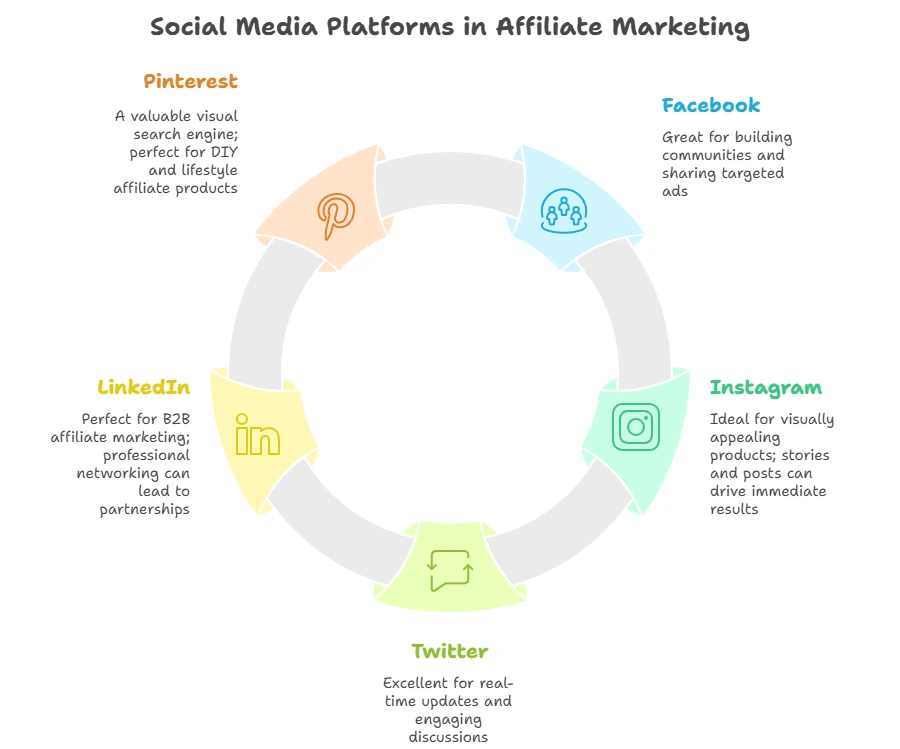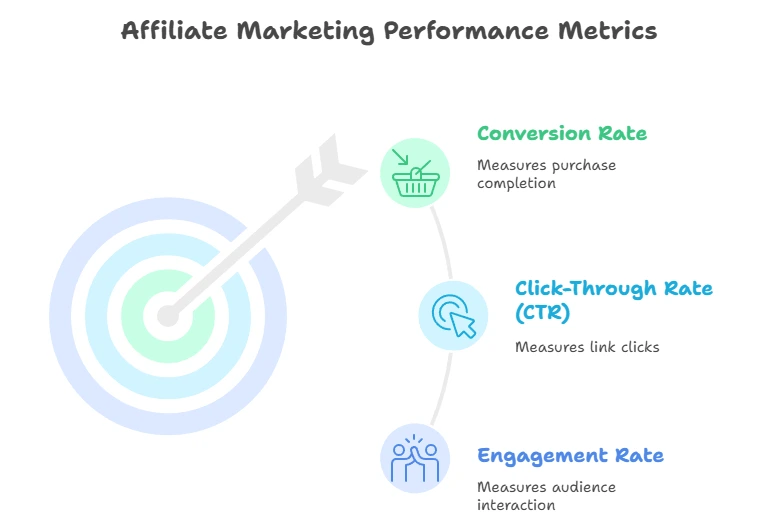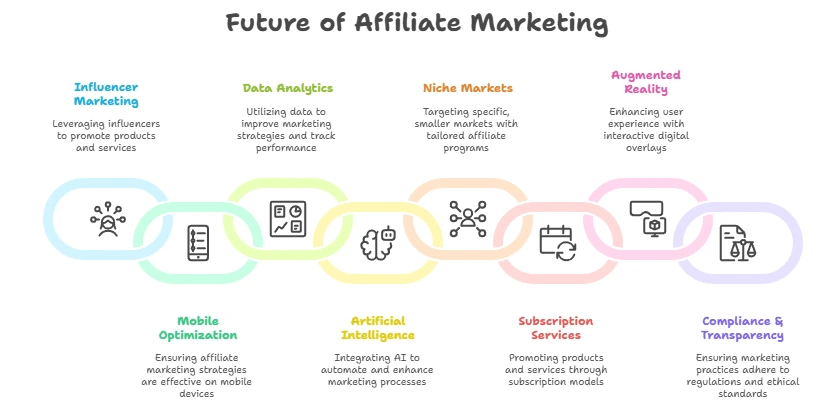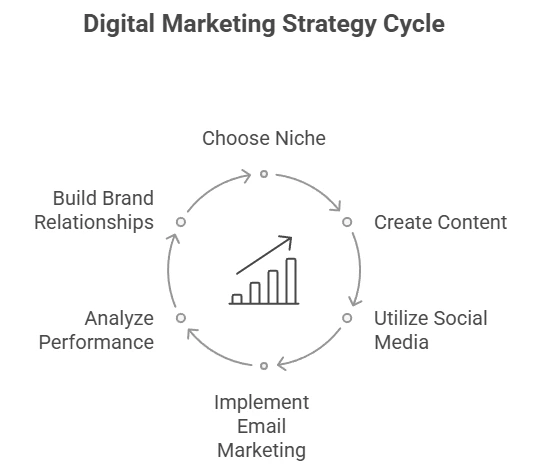 ATTENTION: Want to Learn Affiliate Marketing from Successful Affiliates?
Join this FREE community where successful marketers share their secrets!
Learn directly from highly successful affiliate marketers
Access free, actionable training content regularly
Connect with an active community of over 5,000 members
Network with multiple six-figure earning affiliates
Get your questions answered by real experts
JOIN FREE NOW!
ATTENTION: Want to Learn Affiliate Marketing from Successful Affiliates?
Join this FREE community where successful marketers share their secrets!
Learn directly from highly successful affiliate marketers
Access free, actionable training content regularly
Connect with an active community of over 5,000 members
Network with multiple six-figure earning affiliates
Get your questions answered by real experts
JOIN FREE NOW!
Affiliate marketing has changed the lives of many individuals, converting their passion into profit. Each success story serves as a beacon of hope and inspiration for newcomers in the industry. This article shares several real-life examples of affiliate marketing success stories that highlight the strategies and determination behind them.
Building a Niche Blog: Pat Flynn

Pat Flynn is a prominent figure in the world of affiliate marketing. He created the Smart Passive Income blog, where he openly shares his journey and strategies. Pat initially started by designing websites for architects. However, after some setbacks, he turned to affiliate marketing, focusing on more diverse topics.
His success stems from a few key strategies:
- Transparency: Pat shares his income reports, showcasing what works and what doesn’t in affiliate marketing.
- Quality Content: He provides valuable content that resonates with his audience, making it easier to promote products authentically.
- Community Engagement: By involving his audience, he builds trust, leading to higher conversions.
Through hard work and dedication, Pat learned how to create an income stream that allows him to live life on his terms. You can find more details about his journey on Smart Passive Income.
Using Social Media: Michelle Schroeder-Gardner

Michelle is the founder of the personal finance blog, Making Sense of Cents. She started her blog in 2011 to share her financial experiences and tips. Within a few years, Michelle transitioned full-time into affiliate marketing, focusing mainly on finance-related products and services.
Here are some insights from her story:
- Leveraging Social Media: Michelle utilizes platforms like Pinterest and Instagram to drive traffic to her blog.
- Product Selection: She promotes only products she trusts and has personally used, ensuring she maintains authenticity.
- Building a Brand: Michelle focuses on creating a strong, recognizable brand, which attracts a loyal audience.
Her story is a testament to the power of engagement and authenticity. Discover more about her achievements at Making Sense of Cents.
Diversifying Income Streams: John Chow

John Chow is known for his blog, John Chow dot Com, where he teaches others how to make money online. He began affiliate marketing after starting a tech blog in 2005. John’s story reflects the importance of diversifying income streams in affiliate marketing.
Key takeaways from his journey include:
- Blogging Variety: John explores various niches, which allows him to promote multiple affiliate products.
- Community Focus: He maintains close interactions with his followers, leading to high engagement and trust.
- Multiple Platforms: John utilizes podcasts, YouTube, and email marketing to amplify his reach.
John Chow’s strategies emphasize the importance of versatility in affiliate marketing. Learn more about his methods by visiting John Chow dot Com.
Affiliate Marketing via E-commerce: Anne & Kevin
Anne and Kevin are a couple who successfully integrated affiliate marketing into their e-commerce business. They run a home goods store online and strategically use affiliate marketing to supplement their income. Their approach is noteworthy for its creativity.
Here’s how they achieved success:
- Enhancing Product Pages: Anne and Kevin create detailed product reviews and guides, incorporating affiliate links to relevant products.
- Creating Tutorials: They produce DIY videos showcasing their products, subtly promoting affiliate items.
- Partnerships: The couple collaborates with other brands, ensuring cross-promotion benefits.
Dynamic and focused, Anne and Kevin’s story shows that blending e-commerce with affiliate marketing can yield remarkable profits.
These real-life success stories illustrate that affiliate marketing is not just for seasoned professionals. Whether starting a blog, utilizing social media, or integrating it into e-commerce, anyone can find their niche and thrive in this exciting field. The key is to stay authentic, connect with your audience, and keep learning. With dedication and smart strategies, you too could be featured in the next wave of affiliate marketing success stories!
For further exploration of affiliate marketing techniques and success tips, you may visit Affiliate Guard Dog and Digital Marketing Institute.
Key Strategies Behind Top Affiliate Marketers
Many people wonder how some affiliate marketers achieve spectacular success while others struggle. Understanding key strategies can transform your approach to affiliate marketing and lead you to success. Here are some effective methods used by top affiliate marketers:
Choosing the Right Niche
The first step to success is selecting a niche that interests you but also has a profitable market. Here are some tips:
- Identify Your Passion: Choose a niche that excites you. Your genuine interest will keep you motivated.
- Analyze Market Demand: Use tools like Google Trends to examine if people are searching for products in your niche.
- Evaluate Competition: Check your competitors. Find gaps where you can provide better content or service.
Building Trust Through Quality Content
Your content serves as the foundation of your affiliate marketing efforts. Great content engages readers and earns their trust. Focus on:
- Creating Informative Articles: Write articles that genuinely help your readers. Aim to educate or solve problems instead of merely promoting products.
- Using Engaging Visuals: Incorporate images, infographics, or videos to break text and illustrate points clearly.
- Being Authentic: Share personal experiences with products. Authenticity resonates well with the audience.
Leveraging Social Media Platforms
Social media can amplify your reach considerably. To maximize your reach, you should:
- Utilize Multiple Platforms: Don’t just stick to one social media platform. Share your content across various channels like Facebook, Instagram, Pinterest, and LinkedIn.
- Engage with Your Audience: Respond to comments, ask questions, and create polls. Engagement builds community and trust.
- Share User-Generated Content: Encourage followers to share their experiences. This not only provides authenticity but also helps widen your reach.
Effective Email Marketing
Email marketing remains one of the most effective tools for affiliate marketers. Here’s how to use it right:
- Build an Email List: Offer value in exchange for email addresses, such as free eBooks or articles.
- Segment Your Audience: Divide your email list based on interests or behaviors. This allows you to send personalized offers.
- Use Compelling Subject Lines: Draw your subscribers in with interesting subject lines that prompt them to open your emails.
Analyzing Performance and Adjusting Strategies
Successful marketers continuously analyze their performance. Some strategies to consider are:
- Using Analytics Tools: Tools like Google Analytics help track your website’s performance, providing insight into what works and what doesn’t.
- Conducting A/B Testing: Test different headlines, content formats, or offers to see which yield better results.
- Monitoring Click-Through Rates: Gauge how well your affiliate links perform. If certain links aren’t converting, consider replacing them.
Building Relationships with Brands
Establishing strong relationships with the brands you promote can enhance your success. Here’s how:
- Communicate Regularly: Keep in touch with your affiliate managers. They can provide insights, new offers, and support.
- Negotiate Better Terms: As you grow, don’t hesitate to ask for higher commissions or exclusive deals.
- Showcase Results: When you perform well, brands are more likely to want to work with you. Share success stories and metrics to strengthen partnerships.
Success in affiliate marketing does not come overnight; it requires strategic efforts, patience, and consistency. Many top affiliate marketers began with little knowledge but with time, they developed techniques that worked for them. You can learn from their journey and apply the strategies that best fit your goals.
For more actionable strategies and community support, explore resources from Smart Passive Income.
| Strategy | Description |
|---|---|
| Choosing the Right Niche | Select a niche that you’re passionate about and has a market demand. |
| Content Quality | Create informative, engaging content that builds trust. |
| Social Media Utilization | Leverage multiple platforms and engage with your audience. |
| Email Marketing | Build an email list and send personalized campaigns. |
| Performance Analysis | Use analytics to track and improve your strategies. |
| Brand Relationships | Build and maintain strong relationships with affiliates. |
Common Challenges in Affiliate Marketing and How to Overcome Them
Affiliate marketing can be a rewarding venture. However, it comes with its own set of challenges that many marketers encounter. Recognizing these hurdles is the first step in overcoming them. Here, we’ll explore some common challenges you might face in affiliate marketing and provide actionable strategies to tackle them effectively.
Finding the Right Niche
One of the key challenges in affiliate marketing is selecting a profitable niche. Many newcomers jump into popular areas without understanding their competition or the audience’s needs. To find the right niche:
- Research trending topics using tools like Google Trends.
- Join niche-related forums and social media groups to understand what people are discussing.
- Evaluate the competition to ensure there’s room for your voice.
Building an Audience
Once you’ve chosen your niche, the next hurdle is growing your audience. An engaged audience is vital for successful affiliate marketing. Here are strategies to attract and retain your audience:
- Create valuable content that solves problems or answers questions.
- Utilize SEO strategies to increase your website’s visibility on search engines.
- Promote your content on social media platforms relevant to your niche.
- Engage with your audience by responding to comments and by participating in discussions.
Identifying Quality Affiliate Programs
Not all affiliate programs are created equal. Choosing the wrong program can lead to poor conversions. When assessing affiliate programs, consider:
- The commission structure – is it competitive?
- The reputation of the brand – does it align with your audience’s trust?
- The quality of the products – are they something your audience will benefit from?
For more detailed insights, you can check out AffiliatePrograms.com. This site provides extensive resources for finding reputable programs.
Managing Expectations
Many new marketers expect to achieve instant success. However, affiliate marketing is a long-term game requiring persistence. Here’s how to adjust your expectations:
- Set realistic goals based on research and benchmarks from experienced marketers.
- Track your metrics regularly to understand what’s working and what isn’t.
- Be patient – great results often take time to develop.
Dealing with Technical Issues
Technical challenges can also pose a significant roadblock. Beginners might struggle with website creation, tracking links, and understanding analytics. To overcome these tech-related issues:
- Invest in user-friendly platforms, such as WordPress, that simplify website management.
- Utilize training resources like Udemy to learn essential technical skills.
- Consider hiring a freelance developer if the technical aspects seem overwhelming.
Overcoming Low Conversion Rates
Low conversion rates can be disheartening. You may have traffic, but if those visitors aren’t converting, something needs adjustment. Here are some effective strategies:
- Optimize your website for better user experience, making sure it is mobile-friendly.
- Use compelling calls to action that motivate readers to click through.
- Test different types of content, such as videos, blogs, and reviews, to see which resonates best with your audience.
Remember to continually educate yourself. The affiliate marketing landscape is ever-evolving, and staying updated with the latest trends will help you refine your strategies. For ongoing updates and resources, visit Affilorama, a platform rich with insights and training materials for marketers.
By understanding and addressing these common challenges in affiliate marketing, you can pave the path toward success. Keep your audience at the forefront of your strategy, maintain a flexible mindset, and remember that persistence pays off.
The Role of Social Media in Boosting Affiliate Sales
Social media is a powerful tool for anyone involved in affiliate marketing. Its reach and influence can significantly impact your sales figures and overall success. By leveraging social media platforms effectively, you can engage potential customers, promote products, and build a loyal following that converts into sales.
The Power of Social Media Platforms

Different social media platforms serve various purposes in the affiliate marketing landscape. Understanding where your audience spends their time is crucial. Here are some major platforms and their unique advantages:
- Facebook: Great for building communities and sharing targeted ads.
- Instagram: Ideal for visually appealing products; stories and posts can drive immediate results.
- Twitter: Excellent for real-time updates and engaging discussions.
- LinkedIn: Perfect for B2B affiliate marketing; professional networking can lead to partnerships.
- Pinterest: A valuable visual search engine; perfect for DIY and lifestyle affiliate products.
Creating Engaging Content
The content you share on social media must resonate with your audience. Here are tips to create compelling posts:
- Know your audience: Research their preferences, interests, and pain points.
- Use high-quality images and videos: Visuals attract attention and can convey messages quickly.
- Leverage storytelling: Share personal experiences to connect emotionally with your audience.
- Encourage interaction: Ask questions, create polls, and respond to comments.
Utilizing Influencer Marketing
Collaborating with influencers can amplify your reach. Influencers often have loyal followers who trust their recommendations. Here’s how you can use influencer marketing effectively:
- Select the right influencer: Choose someone whose audience aligns with your target market.
- Provide clear guidelines: Ensure the influencer knows your brand values and campaign goals.
- Track performance: Analyze engagement metrics to measure the effectiveness of the collaboration.
Track and Analyze Your Results
Tracking your performance is essential to improve your strategies. Here are metrics you should focus on:
| Metric | Description |
|---|---|
| Click-Through Rate (CTR) | Measures how many users clicked on your affiliate link compared to total impressions. |
| Conversion Rate | The percentage of visitors who make a purchase through your link. |
| Engagement Rate | The level of interaction (likes, shares, comments) your posts receive. |

Evaluating these metrics will help you understand what works and what doesn’t, allowing for continual refinement of your social media approach.
Building a Community
Creating a community around your affiliate products is invaluable. When customers feel a connection with a brand, they are more likely to make purchases. Here are ways to foster community:
- Host giveaways: Encourage users to interact with your posts and share them for more visibility.
- Create exclusive groups: Use platforms like Facebook to create private groups for your audience.
- Share user-generated content: Feature customer reviews and experiences to build trust.
Staying Updated with Trends
The digital landscape is ever-changing. Staying updated on the latest social media trends can give you an edge. Follow related blogs and platforms such as Neil Patel or Hootsuite for strategies, tips, and insights.
Social media plays a crucial role in boosting affiliate sales. By understanding your audience, creating quality content, using influencer marketing, and tracking your results, you can effectively elevate your affiliate marketing efforts. Always aim for engagement over mere sales; when your audience feels valued, your success will follow.
Future Trends in Affiliate Marketing: What to Expect

Growth of Influencer Marketing
Influencer marketing has become a significant part of affiliate marketing. As consumers increasingly trust recommendations from social media personalities, brands are turning to influencers to promote their products. Consider these aspects:
- Micro-influencers often yield higher engagement rates.
- Long-term partnerships with influencers can enhance authenticity.
- Visual content, including videos and stories, often leads to better conversion rates.
Increased Focus on Mobile Optimization
With mobile Browse dominating internet usage, affiliate marketing strategies must prioritize mobile optimization. Here’s what to consider:
- Ensure your content is responsive and user-friendly on mobile devices.
- Utilize mobile-specific ad formats to capture on-the-go consumers.
- Track mobile user behavior to tailor content effectively.
Enhanced Data Analytics and Tracking
The use of advanced analytics tools will continue growing. Affiliates need to harness data effectively. Here are key tools and strategies:
- Implement affiliate dashboards to monitor performance in real-time.
- Utilize A/B testing to refine your strategies.
- Track user behavior to personalize content and improve conversions.
Emergence of Artificial Intelligence
Artificial Intelligence (AI) is transforming various industries, including affiliate marketing. Here’s how AI impacts this field:
- AI can analyze vast sets of data to predict trends and consumer behavior.
- Chatbots enhance customer interaction, providing instant responses to queries.
- Personalization engines help create targeted content that resonates with audiences.
More Affiliate Programs for Niche Markets
As competition grows, more businesses are looking to niche markets to stand out. This trend opens up opportunities for specialized affiliate programs. Consider the following:
- Focus on unique products in specific categories.
- Build a network of affiliates who share a niche audience.
- Invest in tailored marketing strategies that cater to niche markets.
Rise of Subscription-Based Services
Subscription services continue to gain traction, offering a steady revenue stream for affiliates. Here are some factors influencing this trend:
- Consumers prefer less commitment and flexible options.
- Subscription models often lead to higher customer lifetime value.
- Affiliates can benefit from residual income through recurring commissions.
Integration of Augmented and Virtual Reality
Augmented Reality (AR) and Virtual Reality (VR) are making waves in marketing. Their integration into affiliate marketing can elevate customer experiences.
- AR can provide customers with life-like product trials.
- VR lets users engage with brands in immersive environments.
- Both AR and VR have the potential to enhance storytelling in marketing campaigns.
Increased Compliance and Transparency
With the rise of regulations concerning data privacy, marketers must ensure compliance. Being transparent about affiliate links builds trust with audiences. Key points include:
- Disclose affiliate partnerships clearly in your content.
- Implement data protection strategies to safeguard consumer information.
- Stay updated with regulatory changes to avoid potential penalties.
Staying ahead in affiliate marketing requires embracing these future trends. For further insights, you can explore resources at Adweek and Digital Marketer.
With the right approach, you can leverage these trends to maximize your affiliate marketing success, ensuring that you remain competitive in a rapidly changing environment.

